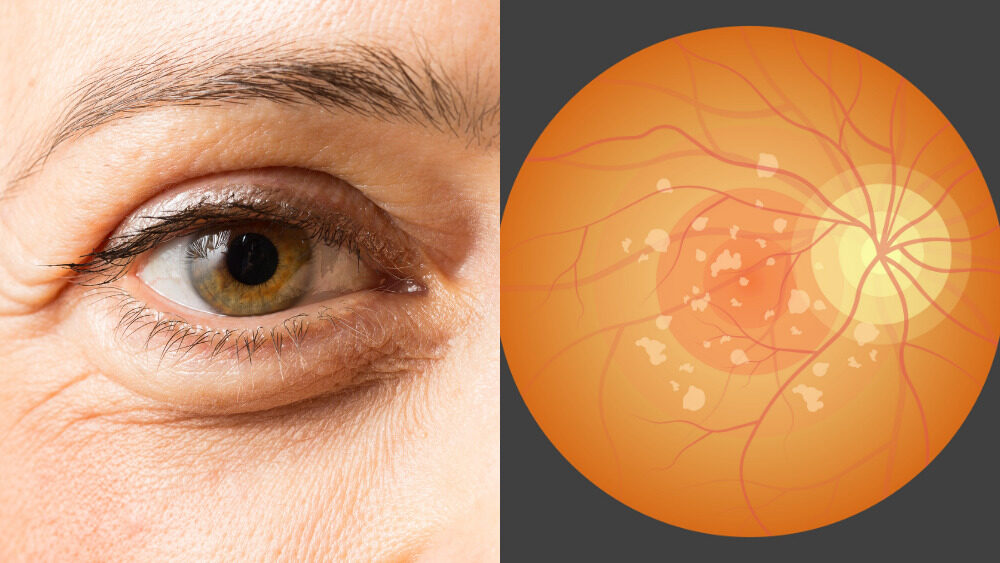Dry macular degeneration is a common eye disorder in people over 50 years old. When the macula, the part of the eye responsible for clear vision, starts to thin, it can cause blurred or reduced vision.
Dry macular degeneration may develop in one or both eyes. It can affect a person’s ability to do everyday tasks such as driving.
With dry macular degeneration, people rarely lose all of their vision. Severity may vary; some people may be more affected than others with the same condition.
People with a family history of dry macular degeneration are more likely to develop the condition, since there’s a genetic component. Smoking, being overweight and having cardiovascular disease puts a person more at risk in relation to their peers.
Dry Macular Degeneration Symptoms
Dry macular degeneration symptoms usually develop gradually. According to the Mayo Clinic, symptoms can include:
- Visual distortions
- Reduced central vision in one or both eyes
- The need for brighter light when doing ‘close-up work’ such as reading
- Difficulty adapting to low light levels.
- Increased blurriness of printed words
- Decreased intensity
- Difficulty recognizing faces
- A well-defined blurry spot or blind spot
If dry macular degeneration only affects one eye, vision changes might not be as noticeable.
Dry Macular Degeneration Prevention
The following steps may help reduce your risk of developing dry macular degeneration:
- Managing other medical conditions: If you have cardiovascular disease or high blood pressure, take the necessary medications and follow your doctor’s instructions for controlling the condition.
- Stop smoking: Smokers are more likely to develop macular degeneration than nonsmokers.
- Maintain a healthy weight and exercise regularly: Maintaining a healthy weight and exercising frequently can help reduce your risk.
- Eat a healthy diet: Fruits and vegetables are filled with antioxidant vitamins and can help reduce your risk of developing macular degeneration
For more information on dry macular degeneration, visit www.Mayoclinic.com.



